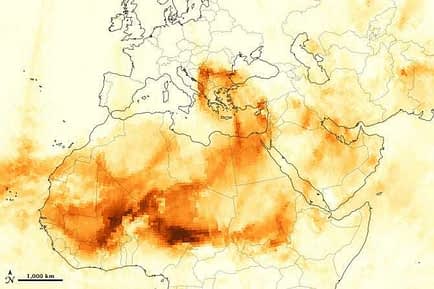Ominous clouds could be covering the 2013 – 2014 olive oil production in most areas in Greece. Instead of favorable weather conditions in spring and early summer that would have allowed optimal fruit setting, high temperatures and strong southerly winds often carrying Saharan red dust affected olive trees at different stages of fruit setting, causing abnormal flower and fruit dropping, as well as underdeveloped fruits, known as the shot berry phenomenon.
In a normal year, the average production in Crete is 100 – 120 thousand tons accounting for about 40 percent of the total Greek olive oil production but this coming year’s harvest may see yields dropping by more than 60 percent. Cretan producers fear that their income loss will be more than 150 million euros.
The CEO of Vassilakis Estate located in eastern Crete, Manolis Vassilakis, remarks that never in his 35 years of being in business has he encountered such crop devastation. Momentum is gathering as producers around Greece submit claims for damages and loss of income to the Greek Agricultural Insurance Organization (ELGA) and to the Ministry of Rural Development and Food.
In response to these claims, ELGA issued a press release which acknowledges the problem in Crete and in other olive oil producing areas in Greece. The organization stated that according to EU regulations, any claims for compensation will be reviewed in the beginning of 2014, when yield and damage data are available.
Nikos Michelakis, the scientific consultant of the Association of Cretan Olive Municipalities, pointed out that just being vigilant is not an adequate response to the situation and that the level of damage could be assessed now and not after the forthcoming harvest period.
Aris Kefalogiannis, CEO of Gaea Products SA, is concerned that “we will face quality issues in olive oil in the upcoming period and it will also be difficult for us to find the necessary quantity of olive oil that fits our high quality standards. Moreover, due to the expected high quantity of Spanish production, the prices of the Greek olive oil will be the same or even less than the current level.”









